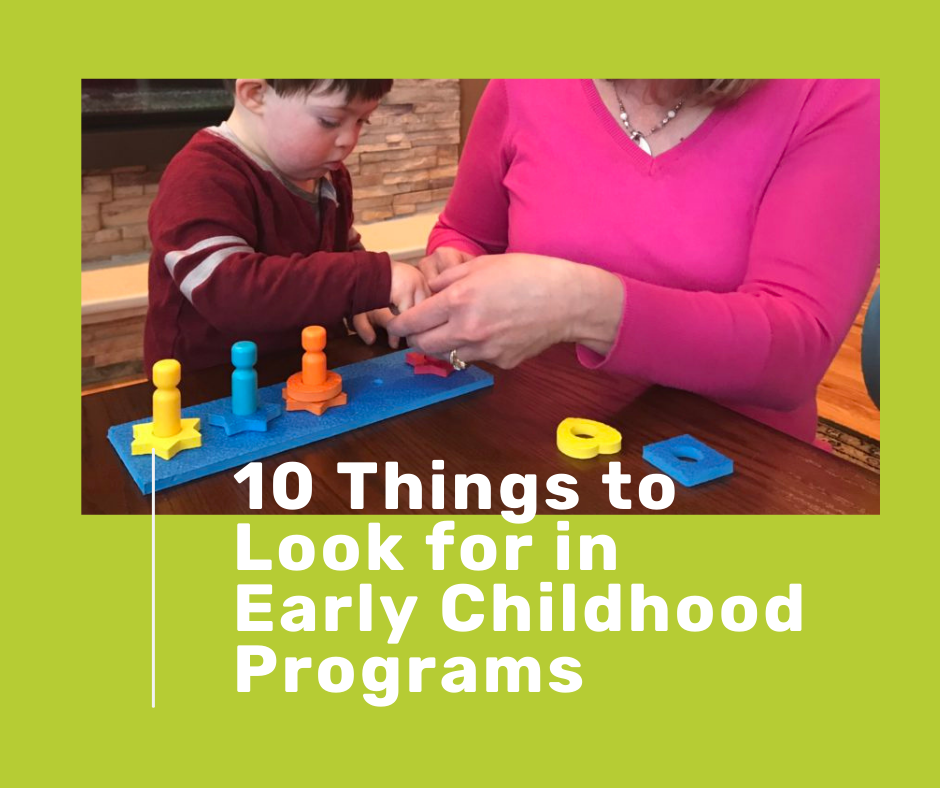by Donna Nylander, shortened for readership. Read the full article here.
Recent research has taught us that everyone benefits when children with special needs learn alongside their typically developing peers. Inclusive settings should be the first option to be considered for young children with disabilities. But what should parents look for as they seek quality inclusive early childhood programs for their child? And what should educators aim for in shaping quality inclusive programs?
Listed below are 10 questions to ask about a program and corresponding indicators of a quality inclusive program.
1. Does your program have a philosophy/mission for inclusive practices?
The program that operates from a set of well-defined core values and expectations supporting inclusion generates a positive attitude and provides effective services for both children and families.
2. Do administrators and staff have an inclusive attitude and spirit?
When staff and administrators are comfortable in inclusive settings, they accept children as children first and then accommodate their special needs.
3. Do you have a consistent and ongoing system for family involvement?
The family is the enduring and central force in the life of the child. Successful implementation of an inclusive model depends on a commitment to the family as the primary decision-maker and partner.
4. Is team planning incorporated into the research-based curriculum?
The team approach is where members have opportunities to plan and problem-solve together. This is the necessary support that teachers need to be successful and feel competent. Team members share roles and responsibilities across disciplines.
5. Do you collaborate and communicate with agencies and other community partners?
School districts, agencies, and programs should cooperate and collaborate for the benefit of the child.
6. Does the individualized Education Program (IEP) drive instruction?
The IEP is intended to be a planning document that shapes and guides the day-to-day provision of special education services. To this end, it is recommended that individualized goals are functional. This means that the goals are meaningful in the context of the child’s everyday experiences and embedded within daily activities and routines, rather than a listing of developmental skills the child has not yet mastered.
7. Are you integrating service delivery into the daily schedule?
When services such as speech, occupational or physical therapy occur within a child’s natural environment throughout typical routines and activities, they can capitalize on the child’s interests, preferences, and actions.
8. Is there a consistent and ongoing system for staff development?
The implementation of staff development programs should be planned carefully to incorporate effective procedures. All staff, including administrators, should be a part of the training efforts.
9. Do the teaches have tools and strategies for addressing issues of disability and inclusion?
The teacher’s task is to show all children how to work and play together.
10. Is there a comprehensive system for evaluating the effectiveness for the program?
Evaluation of the inclusive early childhood program is important for purposes of improvement and expansion.
These indicators help ensure a quality early childhood program is provided to students with and without disabilities. Take the challenge to implement an inclusion program or find one for your child. The benefits outweigh the challenges. You will find the journey is worth it!

